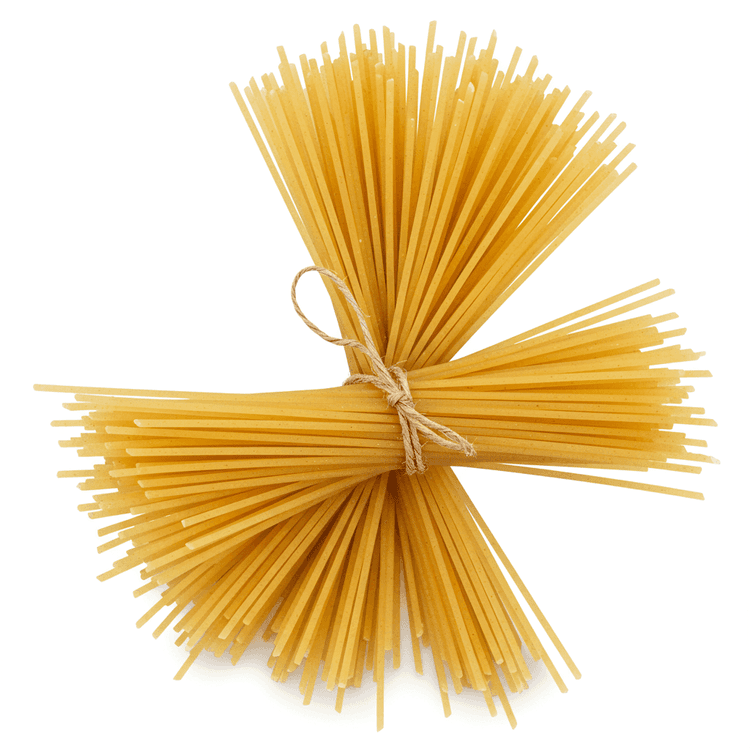
Spaghetti
Spaghetti, a staple in Italian cuisine, is a long, thin, cylindrical pasta made from durum wheat semolina and water. Its smooth texture and neutral flavor make it incredibly versatile, readily absorbing the flavors of various sauces. When cooked al dente, spaghetti offers a slightly firm bite. This popular pasta is a pantry essential for quick and satisfying meals, perfect for pairing with everything from simple tomato sauces to complex meat ragus. Discover the endless possibilities of spaghetti – a classic choice for pasta lovers.
Common Uses
- Spaghetti is commonly boiled until al dente and served with classic tomato sauce, creating a simple yet satisfying meal known as spaghetti with tomato sauce. The sauce clings well to the smooth surface of the pasta.
- It's frequently paired with meat sauces like Bolognese, a rich and flavorful ragu that complements the pasta's mild taste and provides a hearty dining experience.
- Spaghetti is a popular choice for seafood pasta dishes; for example, it can be tossed with shrimp, clams, or mussels in a garlic and white wine sauce, offering a delightful taste of the sea.
- Beyond Italian cuisine, spaghetti can be incorporated into stir-fries, providing a unique textural element and readily absorbing the flavors of Asian-inspired sauces.
- Spaghetti can be baked in casseroles with cheese, vegetables, and meat, offering a comforting and customizable dish ideal for feeding a crowd.
- It is often used as a base for pasta salads, combined with fresh vegetables, herbs, and vinaigrette for a refreshing and portable meal option, perfect for picnics and potlucks.
Nutrition (per serving)
Nutrition (per serving)
Calories
158.0kcal (7.9%)
Protein
5.8g (11.6%)
Carbs
31.0g (11.27%)
Sugars
0.6g (1.2%)
Healthy Fat
0.5g
Unhealthy Fat
0.2g
% Daily Value based on a 2000 calorie diet
Nutrition (per serving)
Calories
158.0kcal (7.9%)
Protein
5.8g (11.6%)
Carbs
31.0g (11.27%)
Sugars
0.6g (1.2%)
Healthy Fat
0.5g
Unhealthy Fat
0.2g
% Daily Value based on a 2000 calorie diet
Health Benefits
- Provides sustained energy due to its carbohydrate content, fueling daily activities.
- Can be a good source of dietary fiber, especially whole wheat varieties, promoting healthy digestion and regularity.
- May contribute to feelings of fullness, aiding in weight management when consumed in moderation.
- Enriched varieties often contain essential nutrients like iron and B vitamins, vital for overall health.
- Lower sodium options support heart health by helping to maintain healthy blood pressure levels.
Substitutes
Chefadora AI is here.
Experience smarter, stress-free cooking.
Storage Tips
Uncooked spaghetti should be stored in a cool, dry place, such as a pantry or cupboard, away from direct sunlight and moisture. An airtight container is ideal for preventing exposure to humidity and pests. Properly stored, uncooked spaghetti can last for 1-2 years past the printed date. Cooked spaghetti should be refrigerated promptly in an airtight container and consumed within 3-5 days. For longer storage, cooked spaghetti can be frozen for up to 2-3 months; thaw in the refrigerator before reheating.
Marnirni-apinthi Building, Lot Fourteen,
North Terrace, Adelaide, South Australia, 5000
Australia

